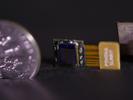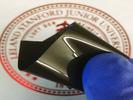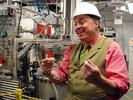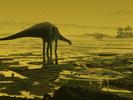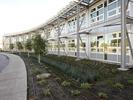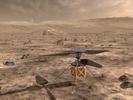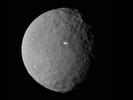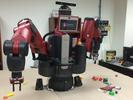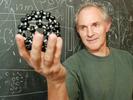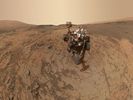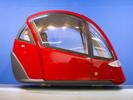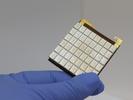Joe Palca appears in the following:
Bulky Cameras, Meet The Lens-less FlatCam
Monday, February 15, 2016
Scientists Use Genetic Engineering To Vanquish Disease-Carrying Insects
Friday, January 29, 2016
Batteries With A Less Fiery Future
Wednesday, January 20, 2016
A Physicist Dreams Of Catching Dark Matter In The Act
Friday, January 01, 2016
Gene Editing Tool Hailed As A Breakthrough, And It Really Is One
Monday, December 28, 2015
Hip-Hop Vocab: The Lexicon Is In The Lyrics
Wednesday, December 23, 2015
Scientists Strike Giant Archaeological 'Gold'
Saturday, December 05, 2015
Scientists at the University of Edinburgh have found a field of dinosaur footprints on the Isle of Skye. The footprints were made by giant dinosaurs 50 feet long that weighed nearly 20 tons. (This piece initially aired on Dec. 3, 2015, on All Things Considered.)
Before There Were Tourists, Dinosaurs Strolled Scotland's Isle Of Skye
Tuesday, December 01, 2015
Most people visit the Isle of Skye off the west coast of Scotland for the beautiful scenery or historic castles or maybe the Talisker Distillery.
Not Stephen Brusatte. He goes to Skye for the dinosaurs. And he's pretty jazzed about what he and his team discovered on a recent ...
NASA Uses Lessons From Space To Design An Efficient Building
Monday, November 30, 2015
Someday A Helicopter Drone May Fly Over Mars And Help A Rover
Friday, November 27, 2015
NASA Probe Prepares For Its Final Pass Around Ceres
Thursday, November 26, 2015
This is the time of year that ancient Greeks gave thanks to the goddess Ceres for bringing forth a bountiful harvest. Modern planetary scientists give thanks to a different Ceres — not a goddess, but the largest object in the belt between Mars and Jupiter.
Studying Ceres should help researchers ...
How Can Robots Learn New Tasks? Practice, Practice, Practice
Wednesday, November 11, 2015
A Discoverer Of The Buckyball Offers Tips On Winning A Nobel Prize
Thursday, October 08, 2015
Nobel Prize In Chemistry Awarded To 3 Scientists For DNA Repair Discovery
Wednesday, October 07, 2015
3 Scientists Win 2015 Nobel Chemistry Prize
Wednesday, October 07, 2015
When Baby Sleeps Near Mom, Guess Who Doesn't Sleep Well?
Friday, October 02, 2015
Mothers have been warned for years that sleeping with their newborn infant is a bad idea because it increases the risk the baby might die unexpectedly during the night. But now Israeli researchers are reporting that even sleeping in the same room can have negative consequences: not for the child, ...
Why NASA Didn't Just Send Over A Rover To Look For Water On Mars
Tuesday, September 29, 2015
Mars is basically a pretty arid place, so it's pretty astonishing that the Mars Reconnaissance Orbiter was able to spot signs of liquid water on the planet's surface.
But even more astonishing in a way is that one of the places where signs of water was spotted is a ...
Why Nonstop Travel In Personal Pods Has Yet To Take Off
Thursday, September 24, 2015
#NPRreads: Senator In Prison, Pitchers Who Hit, Ice Cream, And Overwork
Friday, September 04, 2015
NPRreads is a weekly feature on Twitter and on The Two-Way. The premise is simple: Correspondents, editors and producers from our newsroom share the pieces that have kept them reading, using the #NPRreads hashtag. On Fridays, we highlight some of the best stories.
This week, we bring you three ...
